Surprisingly, this temple holds unique connection to Shri Swami Narayan temple in Karachi, fact that may astonish many Pakistanis
ABU DHABI: The United Arab Emirates (UAE) is poised to achieve another milestone in promoting tolerance and religious harmony as the construction of its largest Hindu temple nears completion, with plans for inauguration on February 14.
Surprisingly, this temple holds a unique connection to the Shri Swami Narayan temple in Karachi, a fact that may astonish many Pakistanis.
Situated between the states of Abu Dhabi and Dubai, the Hindu temple primarily belongs to the “Bochasanwasi Akshar Purushottam Swaminarayan Sanstha” (BAPS) Hindu community. This socio-spiritual faith, originating in the late eighteenth century, traces its roots to the first temple, Shri Swami Narayan Mandir, constructed in 1788 in Karachi’s Ranchore Line area.
Journalists actively covering the Middle East were provided an exclusive tour of this distinctive temple in Abu Dhabi. The occasion highlighted that Lord Swaminarayan, founder of BAPS beliefs in Hinduism, personally built the first temple in Karachi.
Addressing the media, Swami Brahmaviharidas, the head of the BAPS Hindu Mandir project, offered insights into the temple’s historical significance, construction process, and global impact. He expressed gratitude to the UAE leadership, recognising the temple as a catalyst for interfaith and intercultural harmony.
“It is a place of worship for Hindus, but the core idea of the Baps Hindu mandir is a spiritual oasis for global harmony, to promote harmony on this Earth,” he stated.
Construction of the BAPS temple in Abu Dhabi commenced in 2018, following the generous land gift by the Abu Dhabi government. Swami Brahmaviharidas, speaking with The News, commended the spirit of acceptance demonstrated by UAE rulers, from the Founding Father, the late Sheikh Zayed bin Sultan Al Nahyan, to President Sheikh Mohamed, who granted land for the temple.
Distinguished as the first traditional stone-built temple in the Middle East, the Abu Dhabi temple features pink stones from the Indian state of Rajasthan and pillars made of white marble from Italy.
In alignment with the UAE’s seven states, the temple comprises seven towers, each presenting stories from different world religions through sculptures. Notably, ponds surrounding the temple hold specially brought water from the Ganga and Yamuna.
The complex includes a visitor centre, prayer hall, exhibition hall, learning centre, children’s play area, small garden, food court, bookshop, and gift centre, establishing the Abu Dhabi temple as a comprehensive and inclusive space.

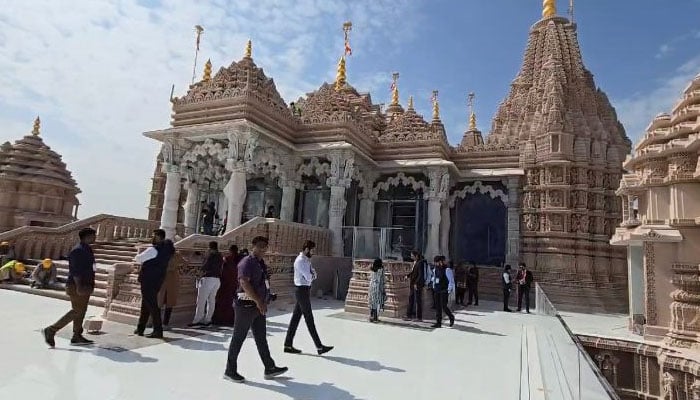 People enter the newly inaugurated Hindu temple in Dubai’s Jebel Ali neighbourhood. — Photo by author
People enter the newly inaugurated Hindu temple in Dubai’s Jebel Ali neighbourhood. — Photo by author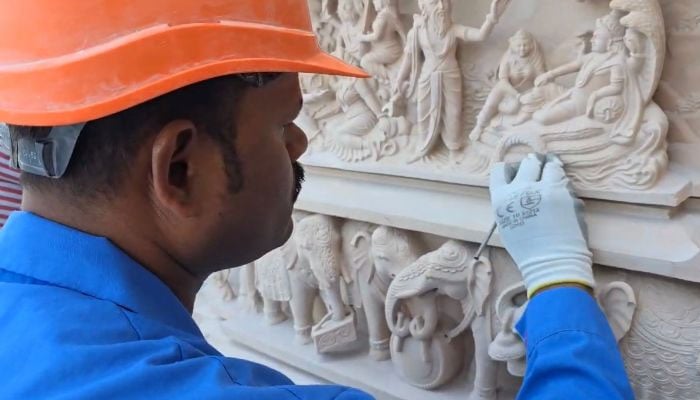 A sculptor forms intricate carvings on the temple's walls. — Photo by author
A sculptor forms intricate carvings on the temple's walls. — Photo by author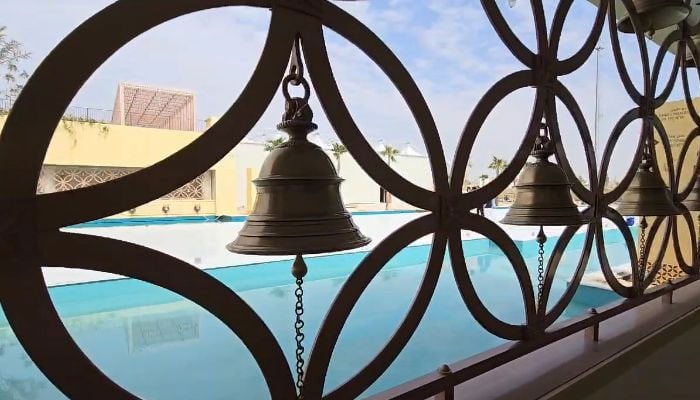 A photograph of decorative bells adorning the temple's structure. — Photo by author
A photograph of decorative bells adorning the temple's structure. — Photo by author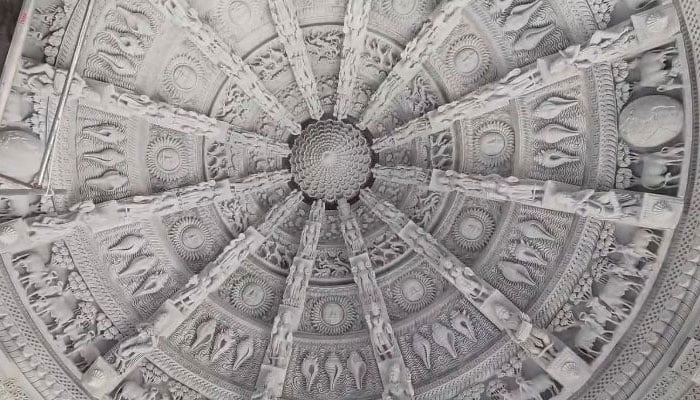 A view of the temple's roof boasting intricate carvings. — Photo by author
A view of the temple's roof boasting intricate carvings. — Photo by author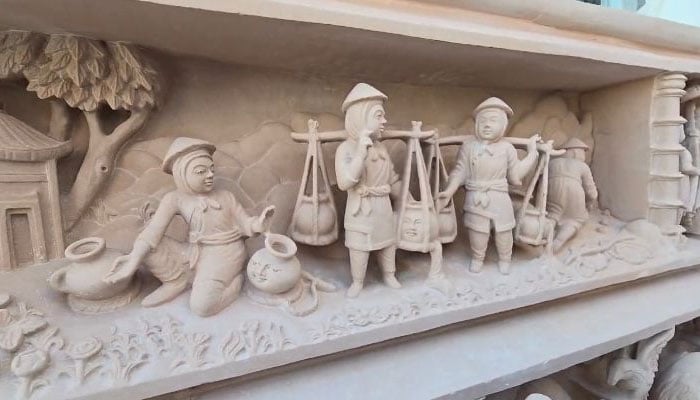 The temple boasts intricate carvings throughout the structure. — Photo by author
The temple boasts intricate carvings throughout the structure. — Photo by author










